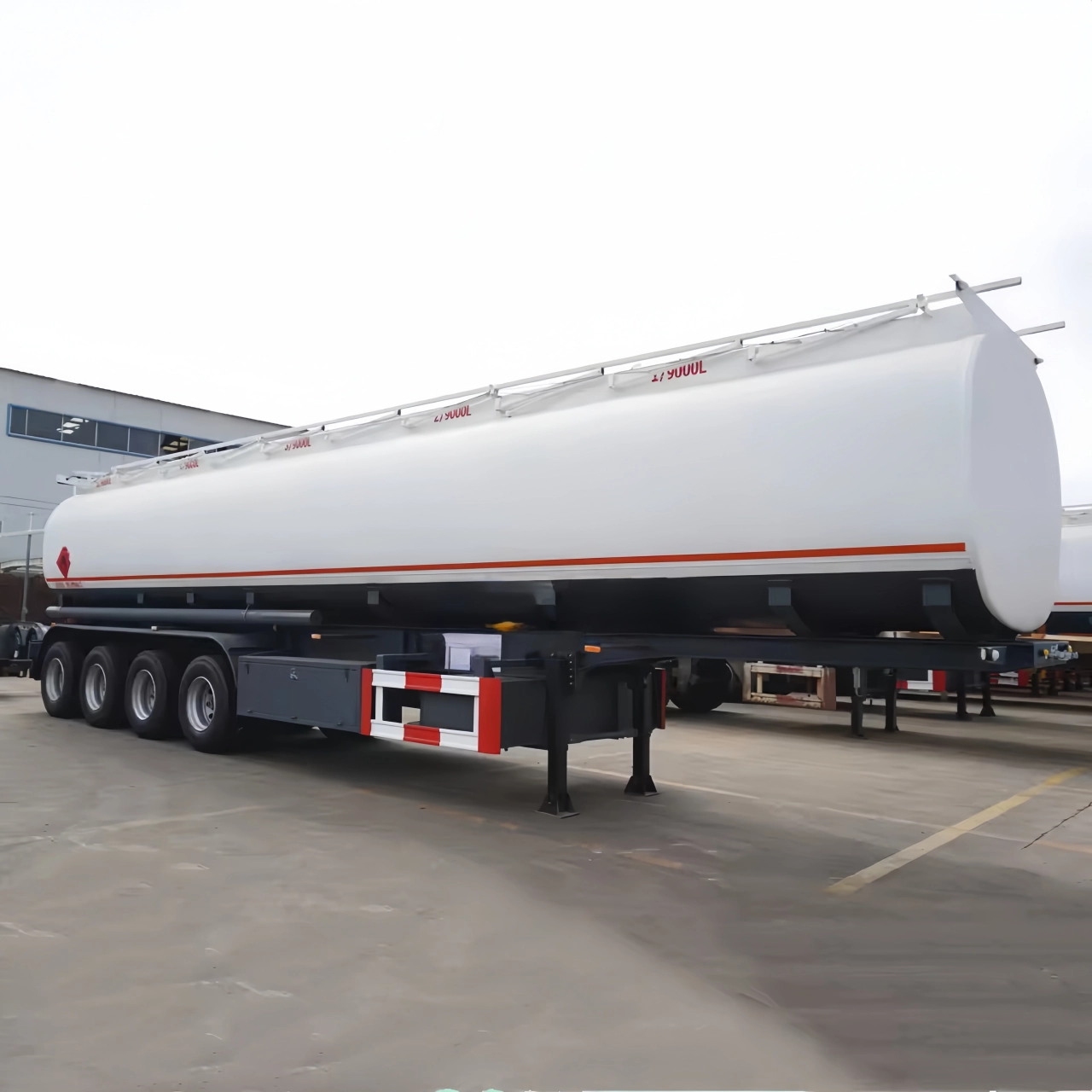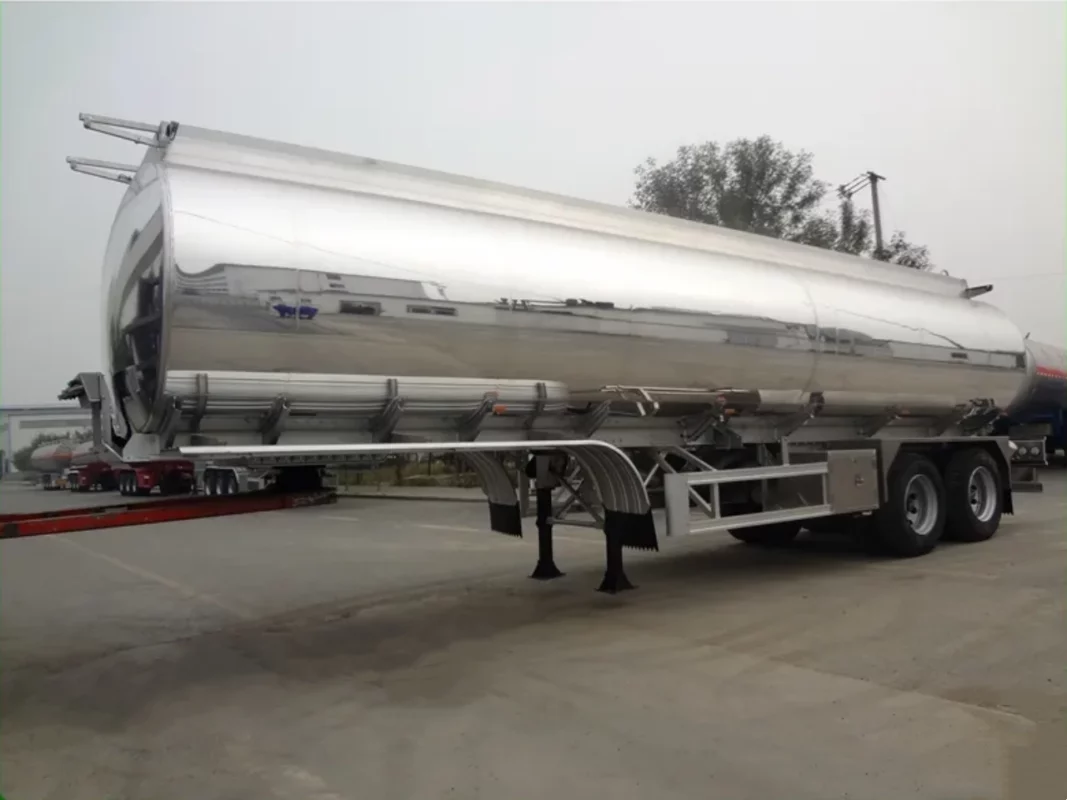Tanker trailers are a critical component of the logistics and transportation industries, designed to haul a wide range of liquid, gaseous, and even dry bulk commodities. From fueling aircraft to delivering milk to your local grocery store, tanker trailers operate behind the scenes to keep society functioning smoothly. But what exactly do these specialized vehicles carry? This article delves into the various types of cargo that tanker trailers transport, exploring their diverse applications and the safety measures that accompany them.
1. Petroleum Products
Perhaps the most recognized use for tanker trailers is the transportation of petroleum products. These include:
- Gasoline
- Diesel fuel
- Aviation fuel
- Crude oil
Fuel tanker trailers are built with high safety standards to prevent spills, fires, or explosions. They are typically made of aluminum or stainless steel and are divided into compartments, allowing multiple fuel types to be transported simultaneously. These tankers are seen at gas stations daily, replenishing underground fuel reserves.
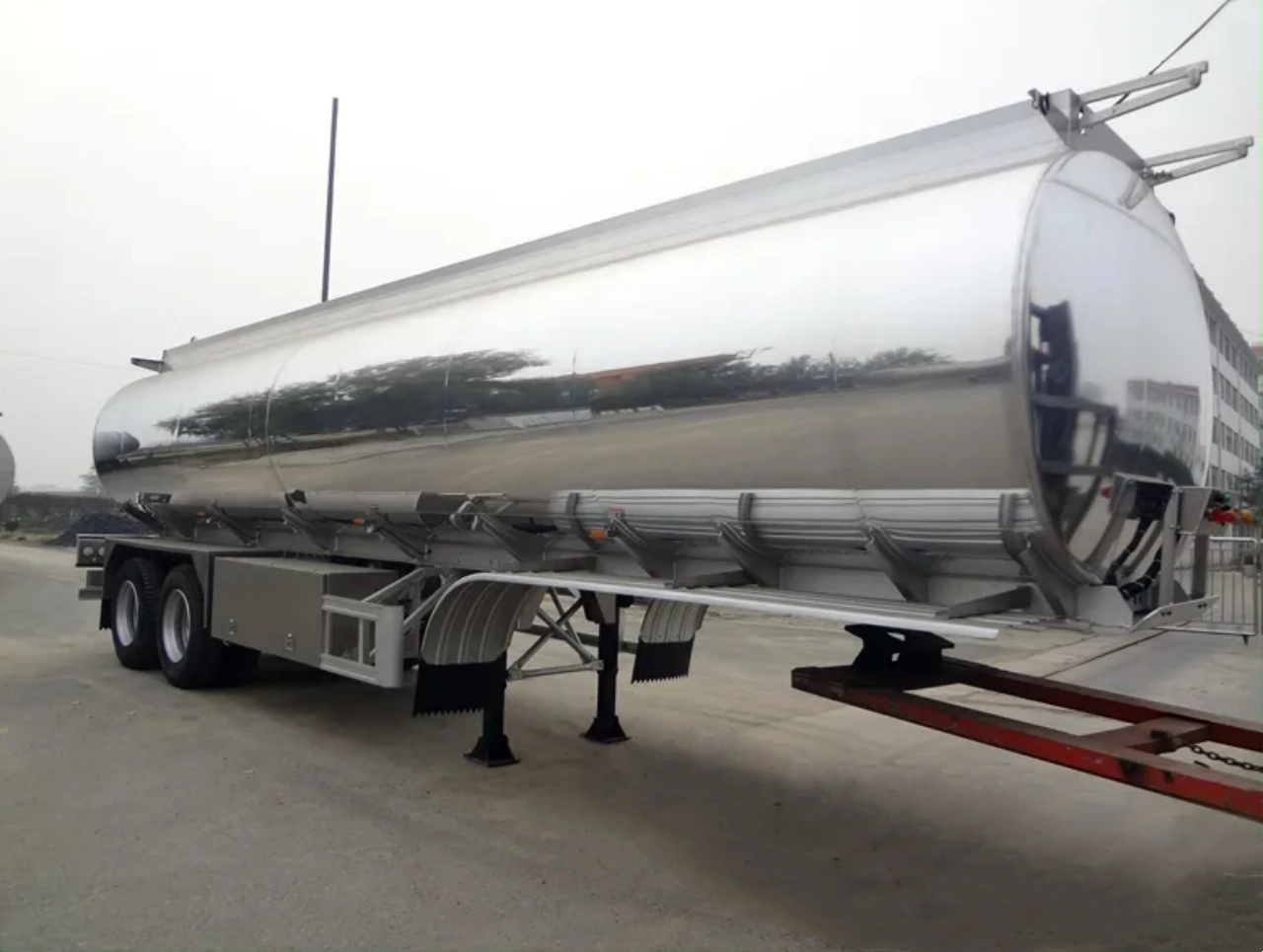
2. Chemicals and Hazardous Materials
Tanker trailers also haul a wide variety of chemicals and hazardous materials, such as:
- Sulfuric acid
- Hydrochloric acid
- Caustic soda (sodium hydroxide)
- Hydrogen peroxide
- Ammonia
These chemicals are vital to industries ranging from agriculture to manufacturing. Tankers that carry them must comply with stringent regulations from environmental and transportation authorities like the U.S. Department of Transportation (DOT) or ADR in Europe. These trailers are often equipped with protective linings or constructed entirely from corrosion-resistant materials such as stainless steel or fiberglass-reinforced plastic (FRP).
3. Food-Grade Liquids
Transporting edible liquids requires a completely different class of tanker trailers. Food-grade tanker trailers are made from high-quality stainless steel to prevent contamination and maintain sanitary conditions. Common cargo includes:
- Milk
- Juice
- Vegetable oils
- Corn syrup
- Liquid sugar
- Wine and beer (in bulk)
These tankers must be meticulously cleaned and sanitized after each load to meet food safety standards. Specialized fittings and hoses ensure that the product remains uncontaminated throughout the journey.
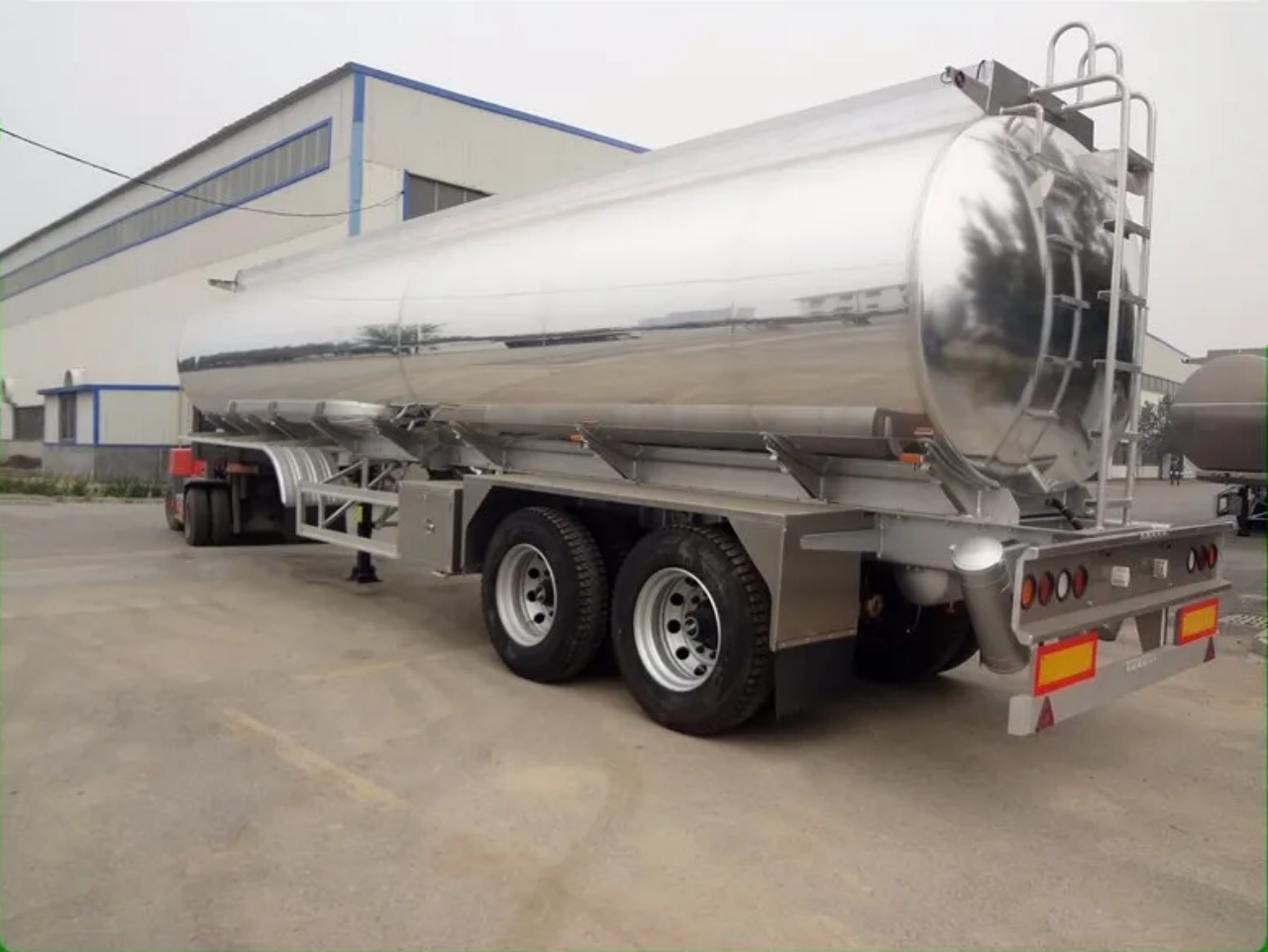
4. Gases
Tanker trailers are also used for transporting liquefied or pressurized gases. These trailers are designed as pressure vessels with reinforced walls to withstand internal pressures far above atmospheric levels. Common gases carried include:
- Propane (LPG)
- Butane
- Anhydrous ammonia
- Carbon dioxide
- Oxygen and nitrogen (in cryogenic form)
Cryogenic tankers are equipped with vacuum insulation and double walls to maintain the ultra-low temperatures required to keep these gases in liquid form. These gases are critical in medical, industrial, and agricultural sectors.
5. Dry Bulk Materials
Though not “liquid” in the traditional sense, tanker trailers can also transport dry bulk goods using pneumatic tankers. These tankers are pressurized to unload the material through hoses. Common dry bulk materials include:
- Cement
- Sand
- Flour
- Plastic pellets
- Lime
- Grain
These tankers are designed to protect the materials from moisture and contamination, making them essential for construction, agriculture, and food processing industries.
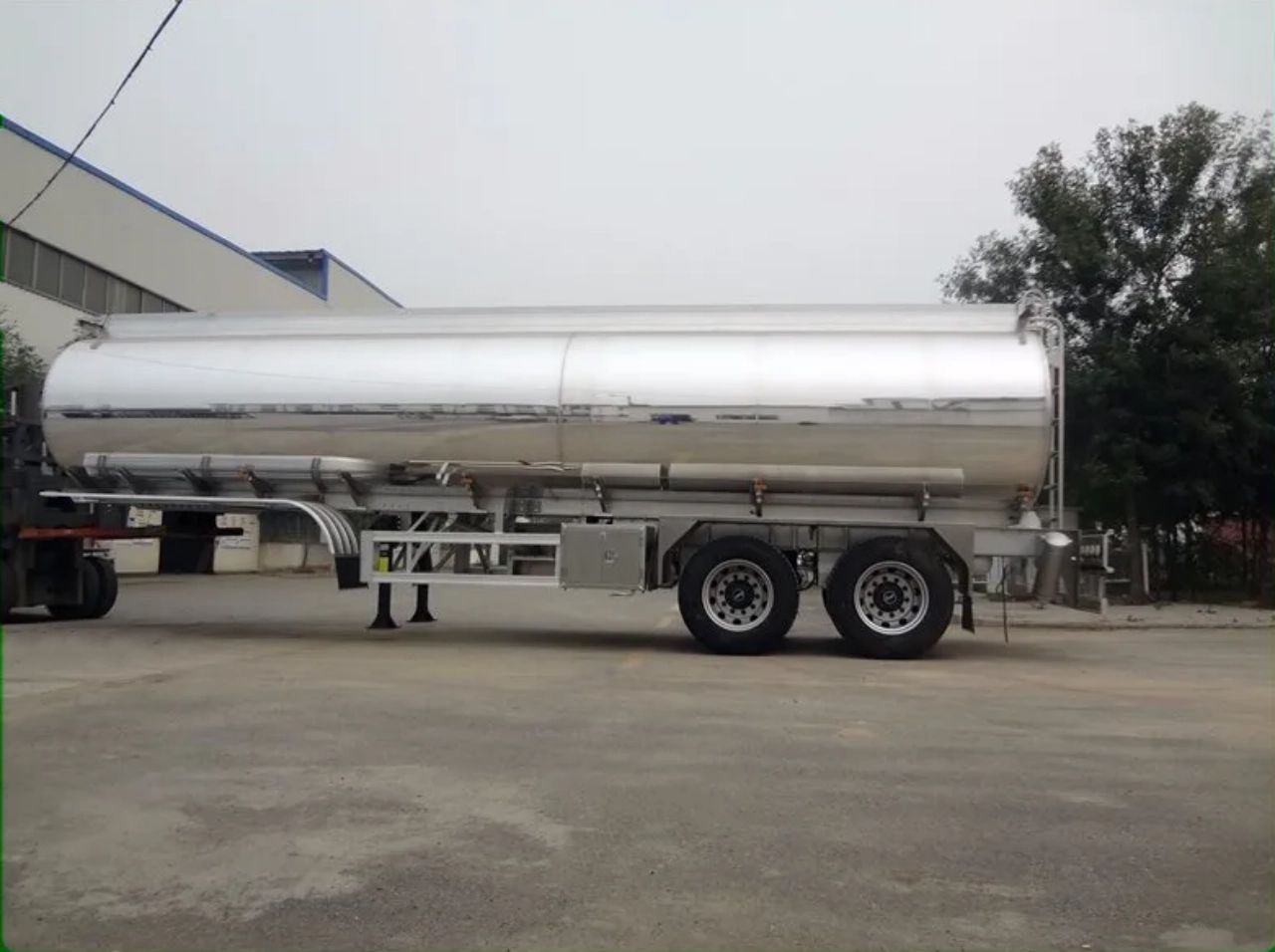
6. Asphalt and Bitumen
Another critical but niche category is tankers built to transport hot liquid materials like:
- Asphalt
- Bitumen
- Tar
These materials must be kept at elevated temperatures to remain in a liquid state. Therefore, asphalt tankers often include heating systems, insulation, and temperature monitoring features. They’re heavily used in road construction and maintenance.
7. Alcohol and Industrial Solvents
Many industrial processes require high-purity solvents and alcohols, such as:
- Ethanol
- Methanol
- Acetone
- Isopropyl alcohol
These chemicals are flammable and volatile, necessitating the use of special tanker trailers with explosion-proof features and strict regulatory compliance. Tankers for such loads often include vapor recovery systems to prevent harmful emissions.
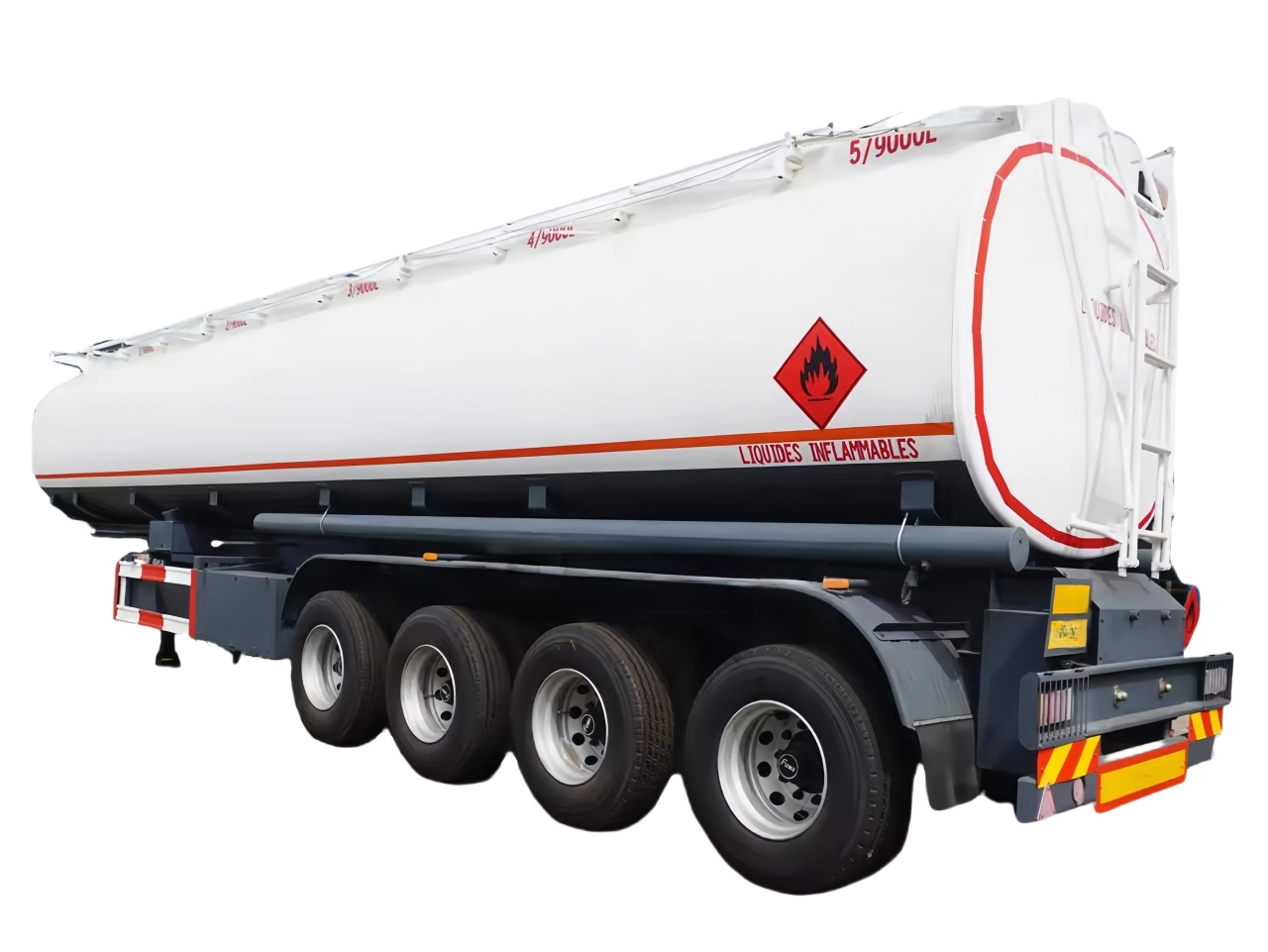
8. Waste and Sludge
Waste management companies also rely on tanker trailers to transport:
- Sewage
- Sludge
- Industrial waste liquids
- Contaminated water
Vacuum tankers are commonly used for these applications. They’re equipped with powerful suction systems to handle thick or hazardous materials. These tankers play a crucial role in environmental cleanup and sanitation services.
9. Water
Water tankers are widely used for:
- Emergency water supply
- Agricultural irrigation
- Dust suppression on construction sites
- Firefighting support
These tankers may vary from small trailer-mounted units to large semi-trailers holding thousands of gallons. They are typically made of stainless steel, aluminum, or polyethylene and may be pressurized or non-pressurized depending on the application.
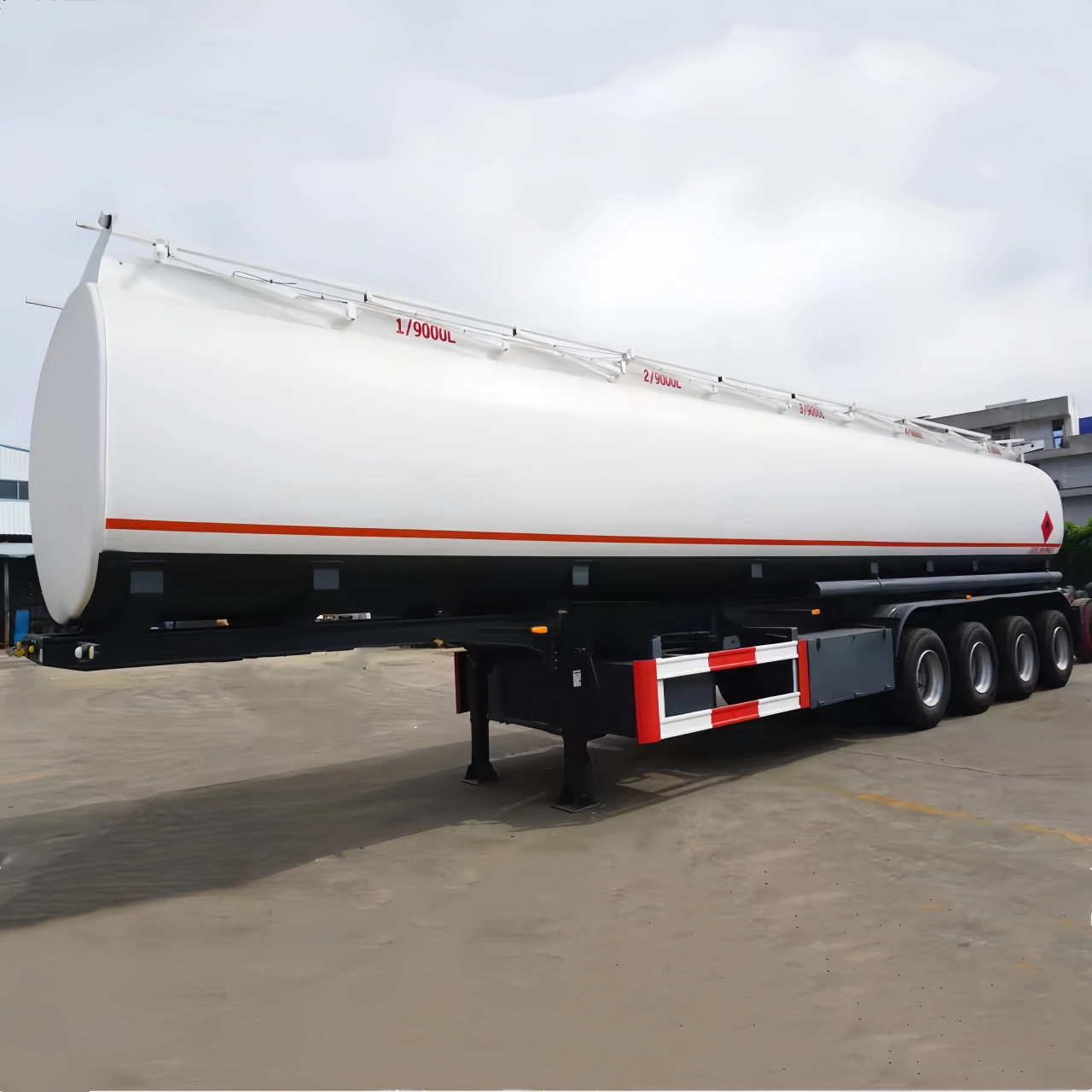
10. Specialty Cargo
Certain industries require customized tanker trailers for highly specialized cargo. Examples include:
- Molten sulfur, which must be kept at high temperatures
- Liquid fertilizers, often corrosive and reactive
- Fragrance compounds, requiring high purity and odor control
- Latex, which is sensitive to temperature and agitation
These tankers may have built-in agitation systems, heating coils, or climate control to ensure product integrity.
Conclusion
Tanker trailers are one of the most versatile and vital types of transport equipment on the road today. They move a staggering range of substances that touch nearly every aspect of modern life—fuel for cars, milk for breakfast, gases for medical treatments, and chemicals for industrial production. Each type of cargo requires a specific trailer configuration, built with unique safety, regulatory, and handling requirements in mind.
Whether it’s hauling dangerous acids or keeping milk fresh over hundreds of miles, tanker trailers are engineered to do the job safely and efficiently. As industries continue to grow and diversify, tanker trailer technology will also evolve to meet new demands in safety, environmental impact, and operational efficiency.
Understanding what tanker trailers carry is more than just knowing what’s on the road—it’s recognizing the complex, behind-the-scenes logistics network that powers everyday life.
